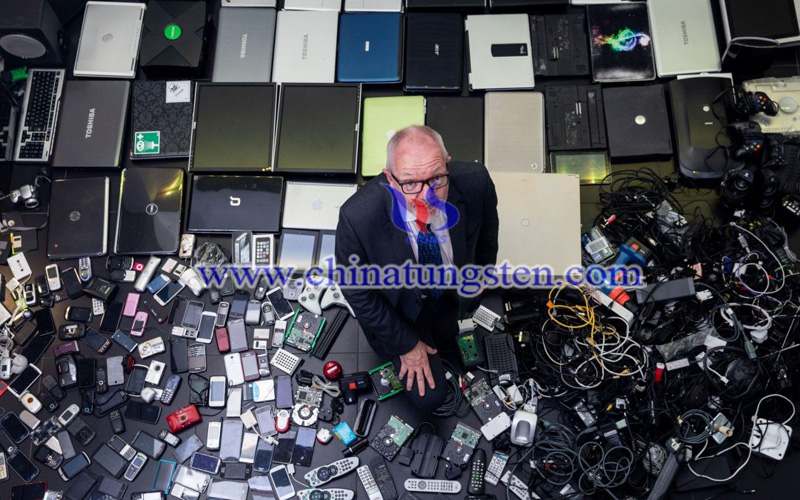UK: 40 Million Unused Devices for Refining Rare Earths
- Details
- Category: Tungsten's News
- Published on Monday, 26 August 2019 09:04
Due to rare earths crisis, the natural sources of the six metal elements in mobile phones will be exhausted in the next 100 years, according to the reports of British media. Royal Society of Chemistry research in the UK suggests that there are 40 million unused devices gathering dust alone. Each of these devices contains increasingly rare elements that must be mined from finite natural sources.
CEO Robert Parker says some elements are "approaching the point of no return". Findings prompt calls for action from government, manufacturers, and retailers. A circular tech economy must be a national priority if consumers are to continue enjoying technology that relies on increasingly rare materials, according to the Royal Society of Chemistry.

Many of us won't have heard of indium, yttrium or tantalum, but each of our mobile phones, tablets, and computers depend on them to perform crucial functions. They are also incredibly rare - with natural sources set to run out within the next 100 years. Other rare elements are also vital to all our electronic devices, from computers to MP3 players to smart TVs.
It can be said that the idea of using British old electronic products to extract rare earth elements is not wrong. After receiving these electronic products, what needs to be done is to treat the already processed metals. The elements are stripped from the electronics, which is much less technically difficult than extracting from ore.
This method has been proposed by Americans to recycle used electronic products and then extract rare earths earlier, the White House allocated $15 million to build a new national recycling research base in Illinois. The main purpose of the base was to extract rare metal elements such as cobalt and lithium from lithium batteries in mobile phones and other electronic products for actual production.
As for how much this can be done, experts themselves admit that their role can be ignored soon. Regardless of the difficulty and cost of recycling old electronic products, according to statistics, every 100,000 iPhones are recycled, and the amount of rare metals that can be extracted from them are only 32kgs. Even if everyone in the UK uses iPhones and reclaims 40 million iPhones, the rare metals that can be extracted are 12,800kgs. The rare elements used in the manufacture of the latest F-35 fighter jet in the US is about 450kgs each, and 12,800kgs of them can make 28 units F-35 fighters.
That is to say, even if the British people donate their own unused devices, they can't make 30 units F-35 fighters. This is a far cry from the US military's goal of building thousands of F-35s. It can be seen that even if the British are so costly to carry out the recycling of used mobile devices business, in the end, it may be just a drop in the bucket.
Expert in the UK explains, lots of the currently used processes for recovering the rare earths are chemical-heavy and not very environmentally friendly, for example using acids. It required better chemistry solutions for extracting materials from the unused devices.
- Rare Earth Manufacturer & Supplier, Chinatungsten Online: www.chinatungsten.com
- Tungsten News & Prices of China Tungsten Industry Association: www.ctia.com.cn
- Molybdenum News & Price: news.molybdenum.com.cn
- Tel.: 86 592 5129696; Fax: 86 592 5129797; Email: sales@chinatungsten.com



 sales@chinatungsten.com
sales@chinatungsten.com